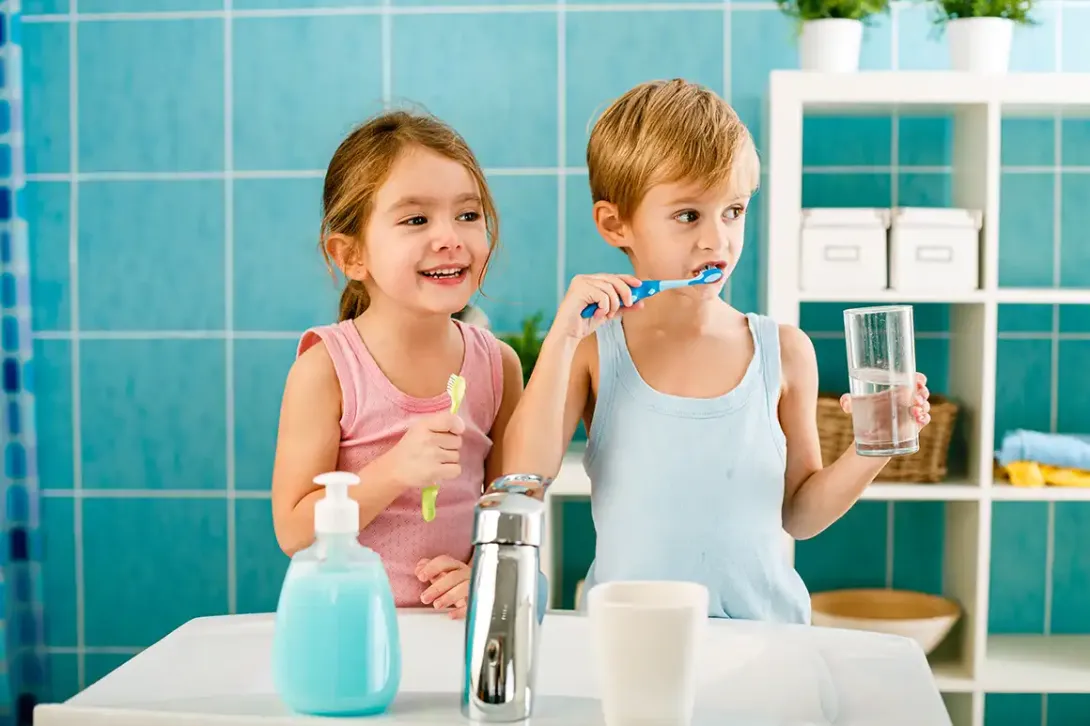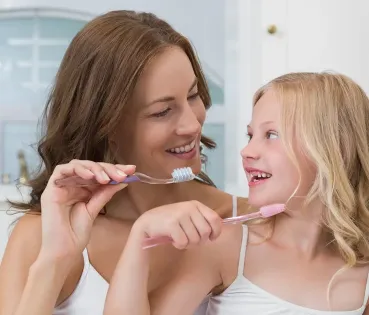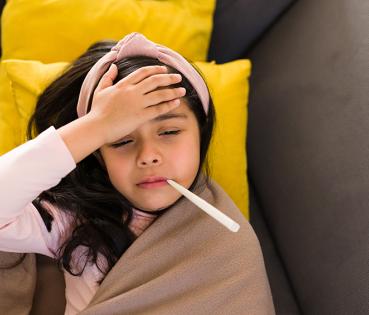
Baby teeth: everything you need to know
A healthy mouth and teeth are synonymous with good health. For this reason, it is important to have a good daily hygiene, starting in the first few months of life when baby teeth appear.
Our children's first teeth usually emerge at around half a year of age. They are almost always the lower incisors, but this is not a strict rule. Although it may not seem like a priority at that time, the Spanish Society of Paediatric Dentistry warns that it is extremely important to take care of those first milk teeth.
On many occasions, families don’t give this routine it’s due consideration. Given that these are teeth that, at around five or six years of age, will start to fall out, they are not given the attention they deserve. And this is a serious mistake.
If there is a lack of good oral hygiene in the young child and, therefore, the baby teeth are not cared for, this can lead to the permanent teeth becoming crowded or crooked in the future due to a lack of proper spacing.
What to do when baby teeth fall out?
Sometimes, children may feel discomfort in the days before a baby tooth falls out. However, it is essential that they understand that, from the time a temporary tooth starts to loosen, it can take several weeks until it finally falls out.
When a temporary tooth is loose and close to falling out, it is advisable to allow the process to occur naturally. In other words, the healthiest thing for children is to not pull them out or accelerate the process, in order to avoid broken teeth, gum injuries, bacterial infections and unnecessary pain. It is also important to know that once the temporary tooth has fallen out, the permanent tooth may take some time to appear. This process may take up to three months, and some discomfort may also be experienced during this process, particularly with molars.
Taking care of teeth and the important role of the family
Parents and adults have the responsibility to teach their children the importance of good dental care. Furthermore, with very young children, they will also be responsible for gently brushing their children's teeth.
Ideally, from the age of six, children should start brushing their own teeth. When they’re finished, adults can supervise the result and help fine-tune the process.
As for the best toothpaste for children, experts recommend fluoride toothpaste containing 1,000 ppm of fluoride for children under three years of age and, from that age onwards, a toothpaste with 1,450 ppm of fluoride. The right amount of toothpaste for the youngest children is about the size of a grain of rice, increasing to a pea-sized application for children three years and older.
Proper brushing
The Spanish Association of Paediatrics reminds us that we must brush our teeth every day and, moreover, it should be done properly. To this end, it recommends:
- Use a toothbrush that is appropriate for each child’s mouth to ensure they can reach every area.
- Change the toothbrush approximately every three months.
- Use toothpaste with an age-appropriate amount of fluoride.
- Once a day, supplement brushing with dental floss to remove residue from areas the toothbrush cannot reach.
How to prevent childhood cavities
One of the biggest problems associated with inadequate dental hygiene is the appearance of cavities. This is a chronic disease that occurs in the mouth due to a sugar imbalance which leads to microbes that live there flourishing. These microbes produce acid, which damages teeth.
Non-existent or poor hygiene is one of the main causes, but an inadequate diet can also be a major cause. It is important to limit sugar intake in childhood, because it will foster the appearance of cavities. A varied and balanced diet that prioritises the consumption of fruit, among other things, is essential for good oral health.
Furthermore, it should be borne in mind that the later a child starts to practice good dental hygiene, the more likely he or she is to develop cavities. For this reason, organisations such as the Spanish Society of Paediatric Dentistry recommend visiting the dentist when the child is one year old.




